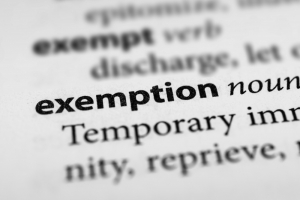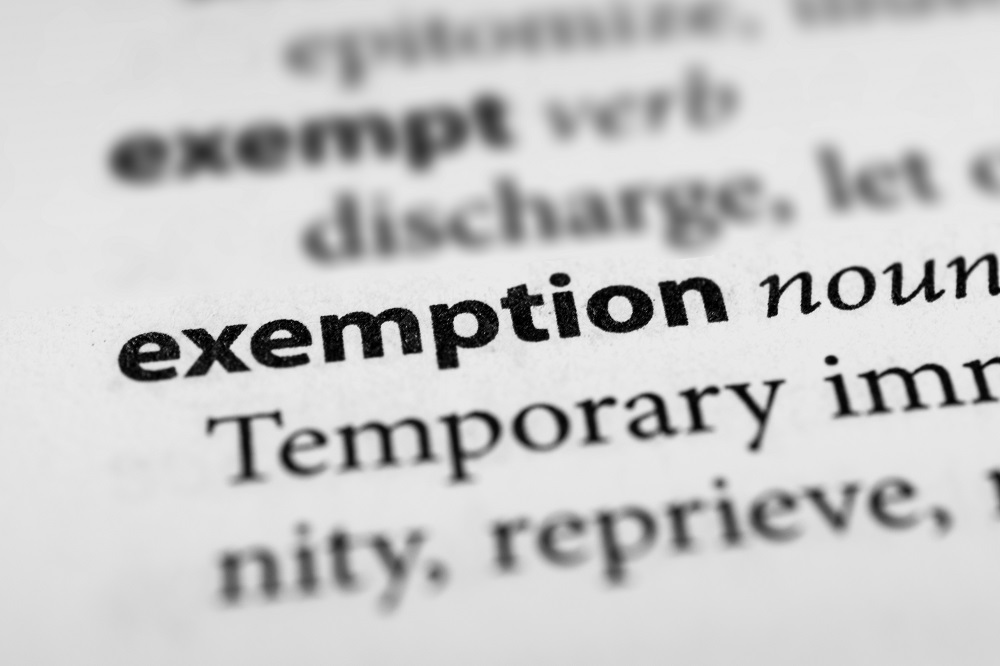Exempt Assets in Arizona Bankruptcy
 If you are facing financial challenges that send you into bankruptcy, you have the right to claim some exemptions. When it comes to filing bankruptcy, exemptions are important. You will claim any exemptions of Schedule C – Property Claimed as Exempt. If specific property is exempt and claimed on that form, the debtor can retain ownership of it and it would not have to be turned over to the trustee to be sold. Federal bankruptcy code and state laws regarding bankruptcy allow for the debtor to claim some property as exempt. These laws are very precise in specifying what property can be claimed as exempt.
If you are facing financial challenges that send you into bankruptcy, you have the right to claim some exemptions. When it comes to filing bankruptcy, exemptions are important. You will claim any exemptions of Schedule C – Property Claimed as Exempt. If specific property is exempt and claimed on that form, the debtor can retain ownership of it and it would not have to be turned over to the trustee to be sold. Federal bankruptcy code and state laws regarding bankruptcy allow for the debtor to claim some property as exempt. These laws are very precise in specifying what property can be claimed as exempt.
In the State of Arizona, a debtor can only claim the state allowed bankruptcy exemptions if he or she has made their state for two full years before filing a bankruptcy petition. If the petitioner did not reside in Arizona for two full years before filing the bankruptcy petition, he or she will claim the exemptions that were allowed in the state where he or she had resided for the most part of six months for two years to two-and-a-half years before filing the bankruptcy petition in Arizona. If the bankruptcy petitioner is unable to claim exemptions based on the code of the previous state of residence, Federal Bankruptcy Code exemptions are used. The bankruptcy exemptions allowed for Arizona bankruptcy filers are very specific.
What are the Bankruptcy Exemptions in Arizona for Debtors?
The allowed exemptions for a bankruptcy filing in Arizona are very specific. There is no room for leeway, so you will need the guidance of your Arizona bankruptcy attorney for determining your exemptions and which bankruptcy filing is best for your specific financial situation based on your assets that you want to retain. Here are the different exemptions that are allowed for Arizona bankruptcy filers:
- The Homestead Exemption – This exemption involves the debtor’s primary residence, such as a house, condo, apartment, or mobile home as well as interest in the property where the primary residence is located up to a value of $150,000. If a husband and wife file bankruptcy jointly, the value cannot be doubled.
- Passenger vehicle equity to not exceed $6,000 fair market value. This total can be doubled if a husband and wife file bankruptcy jointly.
- Personal Property Exemption – The debtor can claim household goods used by them and their family up to $6,000 in value based on fair market value. The value of this exemption can be doubled for a husband and wife when bankruptcy is filed jointly.
- A six-month supply of fuel, food, and provisions to be used by the debtor and his or her family.
- Engagement and wedding rings with a fair market value not exceeding $2,000.
- Animals, such as domestic pets, horses, milk cows, and poultry with a value not to exceed $500.
- Musical instruments, with a value not exceeding $400, for use by the debtor and his or her family.
- Personal library, including documents, manuals, catalogs, and books with a fair market value to not exceed $250.
- If the value doesn’t exceed $1,000, you can keep a burial plot, family Bible, one gun, a bicycle, and a sewing machine.
- Professionally prescribed prostheses, such as a wheelchair, prescribed for use by the debtor or his or her dependents.
- Child support or spousal support received pursuant to a court order.
- Earnings of a minor child unless the discharged debts are for direct benefit of the minor child.
- Life insurance benefits not exceeding $20,000 if the beneficiary is the child or surviving spouse upon the spouse, legal guardian, or parent’s death.
- Employer program benefits, such as disability, health, or accident insurance benefits.

